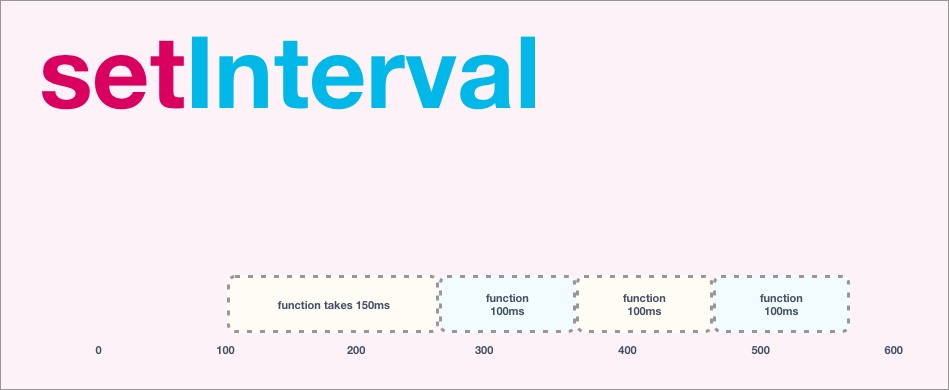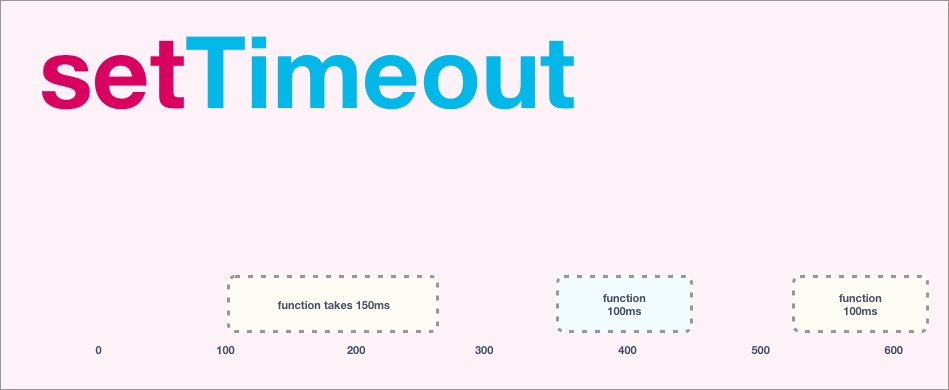Now that we have a good understanding of how JavaScript setTimeout works to delay a function.
Let's look at how we can act every x time.
This can be super helpful for animating stuff or checking a data feed.
JavaScript setInterval function
Let's look at how this will work in its most basic form.
setInterval(() => {
// Run every 100 milliseconds
}, 100);This function will run every 100 milliseconds.
Often you might want to achieve this to run only until a specific condition is met.
We can clear the interval by using the clearInterval.
const timer = setInterval(() => {
// Do something
}, 100);
clearInterval(timer);Or you can even stop it from inside the interval.
const timer = setInterval(() => {
if (condition) {
clearInterval(timer);
return;
}
// Execute the function
}, 100);This is a great way to stop a particular action from running.
Attention points
When you use setInterval, it does not care how long your function runs.
Meaning it will always start a new loop at the set time.
For example, when you use it to animate, but the animations have different lengths, it might cause weird side-effects where the following animation will start, and the first one is just finished.

As you can see, each function can have its own time to execute.
If you need them to wait a specific time, using setTimeout might be a better solution.
We can set up a recursive setTimeout function. That function calls itself once it's done doing its thing.
const coolFunc = () => {
// Execute the function
setTimeout(coolFunc, 100);
};
setTimeout(coolFunc, 100);Which will result in the following flow.

If you are keen to see some more real-world examples, here is a list of articles using them.
Thank you for reading, and let's connect!
Thank you for reading my blog. Feel free to subscribe to my email newsletter and connect on Facebook or Twitter